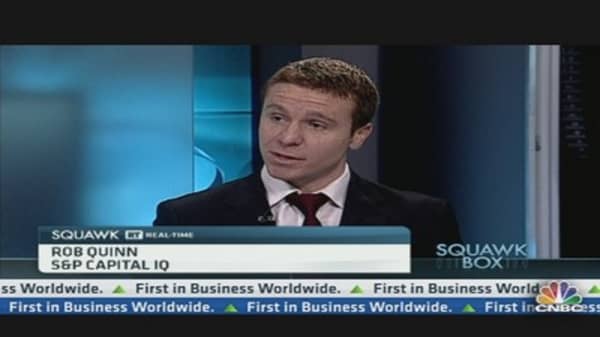Anyone holding Spanish stocks should sell before Madrid is forced to go cap in hand to the European Union and International Monetary Fund, according to analysts at S&P Capital IQ.
Spanish bond yields continue to trade close to 7 percent, a level widely seen as the danger zone for the euro zone’s fourth largest economy, as it battles to avoid the fate of Ireland, Greece and Portugal, who all took EU bailoutswith austerity conditions attached.
“We believe Spain will be given official assistance in the coming quarters, joining the ‘Troika3’ of Greece, Ireland and Portugal in being removed from market funding,” said Rob Quinn, chief European equity strategist at S&P Capital IQ, wrote in a research note.
He predicted that European stock markets will fall by around 5 percent before the end of 2012 with the beleaguered south underperforming the stronger north.
In recent weeks, the euro zone debt crisis has taken a back seat in the markets to second quarter earnings, the scandal over manipulation of the London inter-bank offered rate (Libor) and the huge jump in food prices, but Quinn argued this will not last long.
“We tip our hat to EU policymakers on their further progress but we expect greater political friction before the European Central Bank (ECB) mutualizes greater proportions of the debt overhang. Hence, we believe the intensity of the debate shall return and European banks will relatively underperform again,” Quinn said.
Spain will need 280 billion euros ($343 billion) to fund itself over the next 18 months, according to Quinn – but he calculated that the euro zone’s firewall only has 260 billion euros available. The European Financial Stability Fund , the temporary bailout fund currently in place, and its permanent successor the European Stability Mechanism, could suffer huge strain if Spain did lose access to the market.
With so many macro headwinds facing Europe, equity investors are at the mercy of economic growth elsewhere, meaning the U.S. economy will be crucial over the coming months, according to the report.
“Alas, the U.S. economy is now mired in another sluggish summer. Zooming out of the U.S., global PMI indices are now at their lowest level since Q2 09. This level is consistent with only 1 percent global GDP growth,” Quinn said.
“We think it is abundantly clear that results (of the Q2 earnings season) will be weak. The more pertinent question is ‘will investors look through the disappointments or will the shares sell off’? We fear the latter is more realistic,” Quinn said.





